Northeastern University graduate Olivia Huang receives grant from the Cambridge Arts Council to make documentary about graffiti art
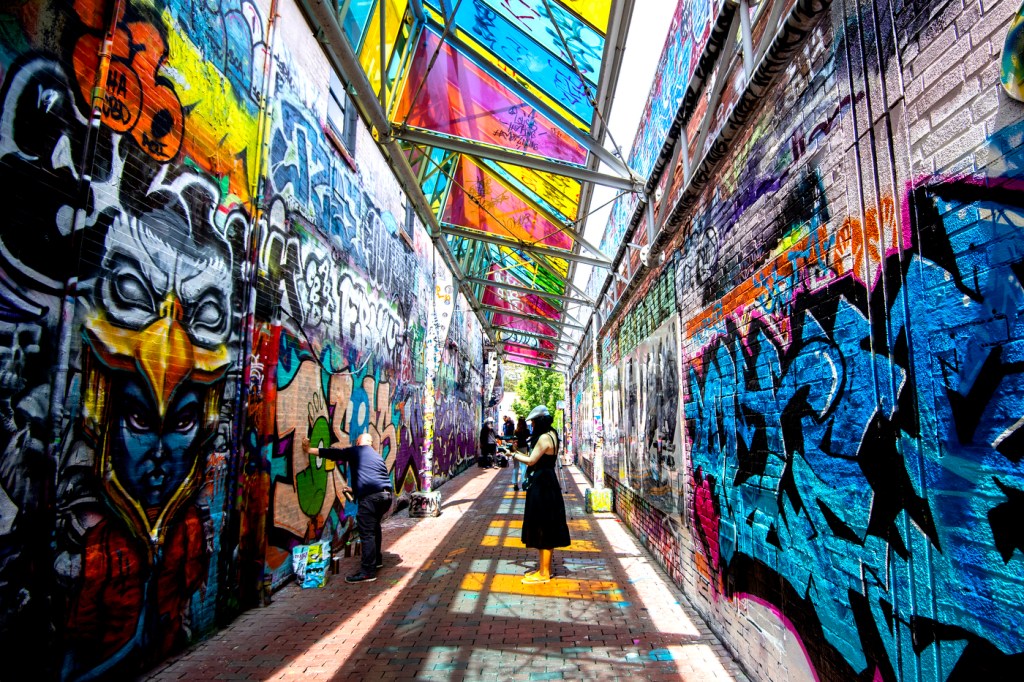
Weiying Olivia Huang walks up to the middle of an alleyway that’s nestled between a restaurant and a Korean supermarket and bursting with gradations of color and light. She puts down her bag.
Fragmented beams of blue and yellow pour down from the plastic panes of a stained glass canopy and bounce off her long shiny black hair as she sets up her tripod and pivots a camera toward Lamar ‘Prop’ Atkins. She presses “record.”
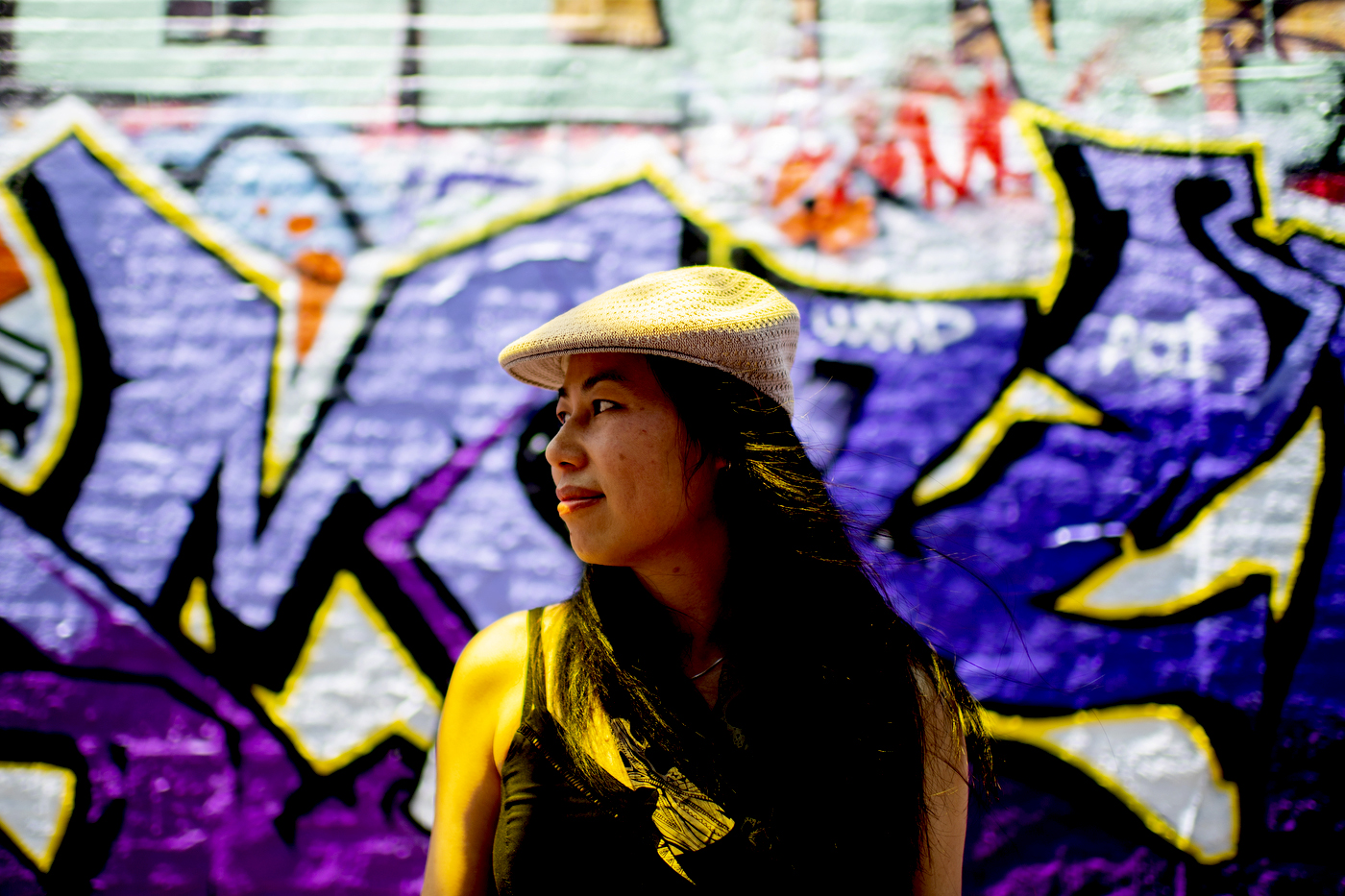
Weiying Olivia Huang, who graduated from Northeastern University in 2017, is making a documentary that will explore the art on Modica Way and the artists who contribute to the colorful alleyway. Photo by Matthew Modoono/Northeastern University
At one end of the alley, Atkins, sporting a burnt orange hat and purple latex gloves, carefully etches ‘PROP’ in giant block letters on a wall that’s already adorned with graffiti art. A black gym bag filled with at least a dozen bottles of spray paint rests against the wall 10 feet away. Spectators meander in and pause to watch. Some take out their smartphones to snap pictures before moving on to the next mural.
Locals and graffiti artists know this splashy corridor in Cambridge, Massachusetts, as Modica Way. Huang, who earned her master’s degree in digital media from Northeastern in 2017, wants others to learn about and gain an appreciation for the alley, which has been the subject of thousands of colorful Instagram posts. She is making a feature-length documentary that explores the legal graffiti movement in this open-air gallery, which has been around since 2007.
Tentatively titled “Above the Free Walls—The Modica Way,” the film will showcase the dynamic artwork on Modica Way and feature in-depth interviews with some of the graffiti artists who use the alley as a canvas.
“I’ve met a lot of them,” says Huang, whose film is supported in part by a grant from the Cambridge Arts Council, a local agency that funds and promotes community-based arts programming. “I recognize their style and sometimes I recognize their face and it’s like ‘Oh, I know this one.’”
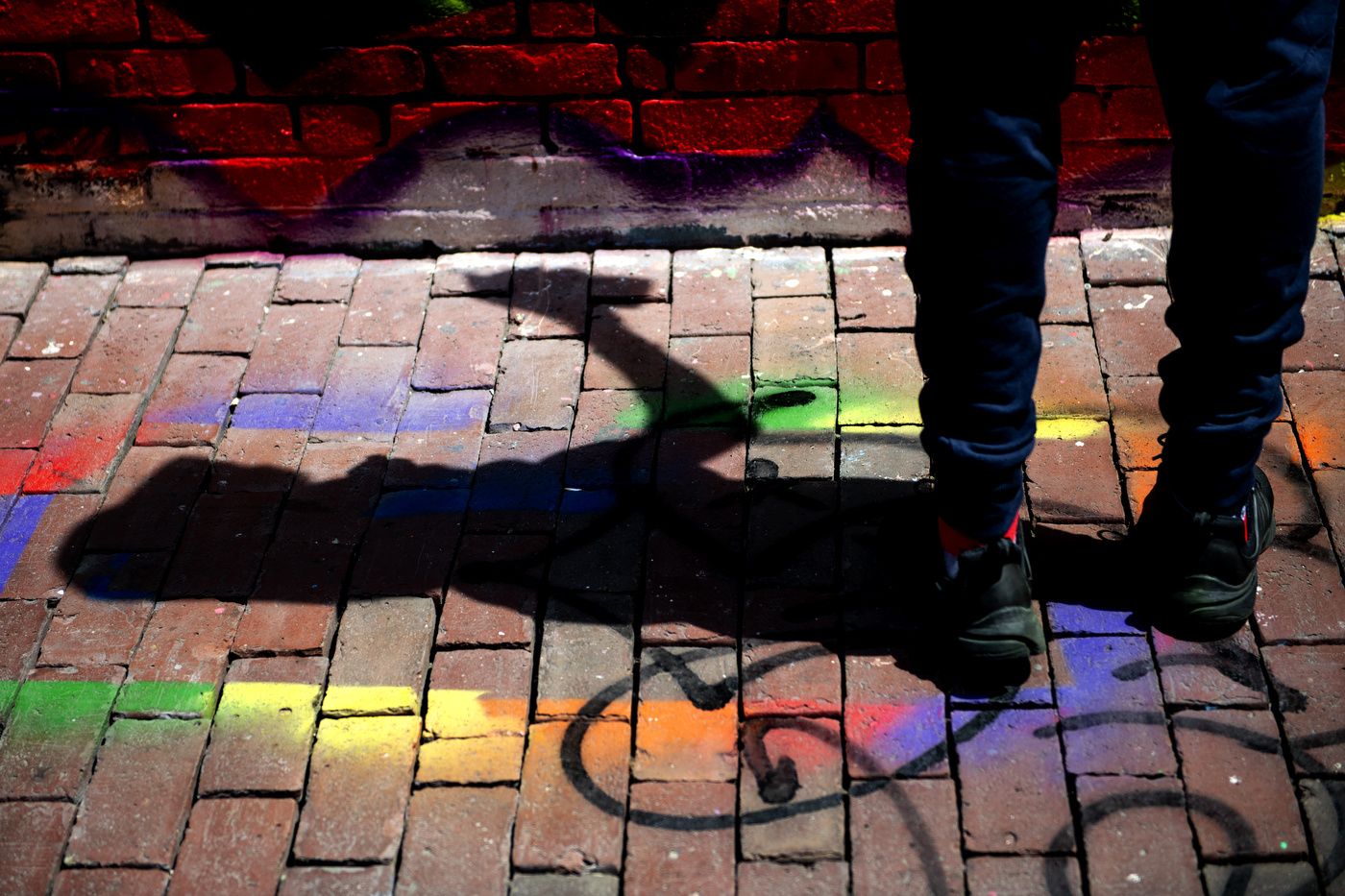
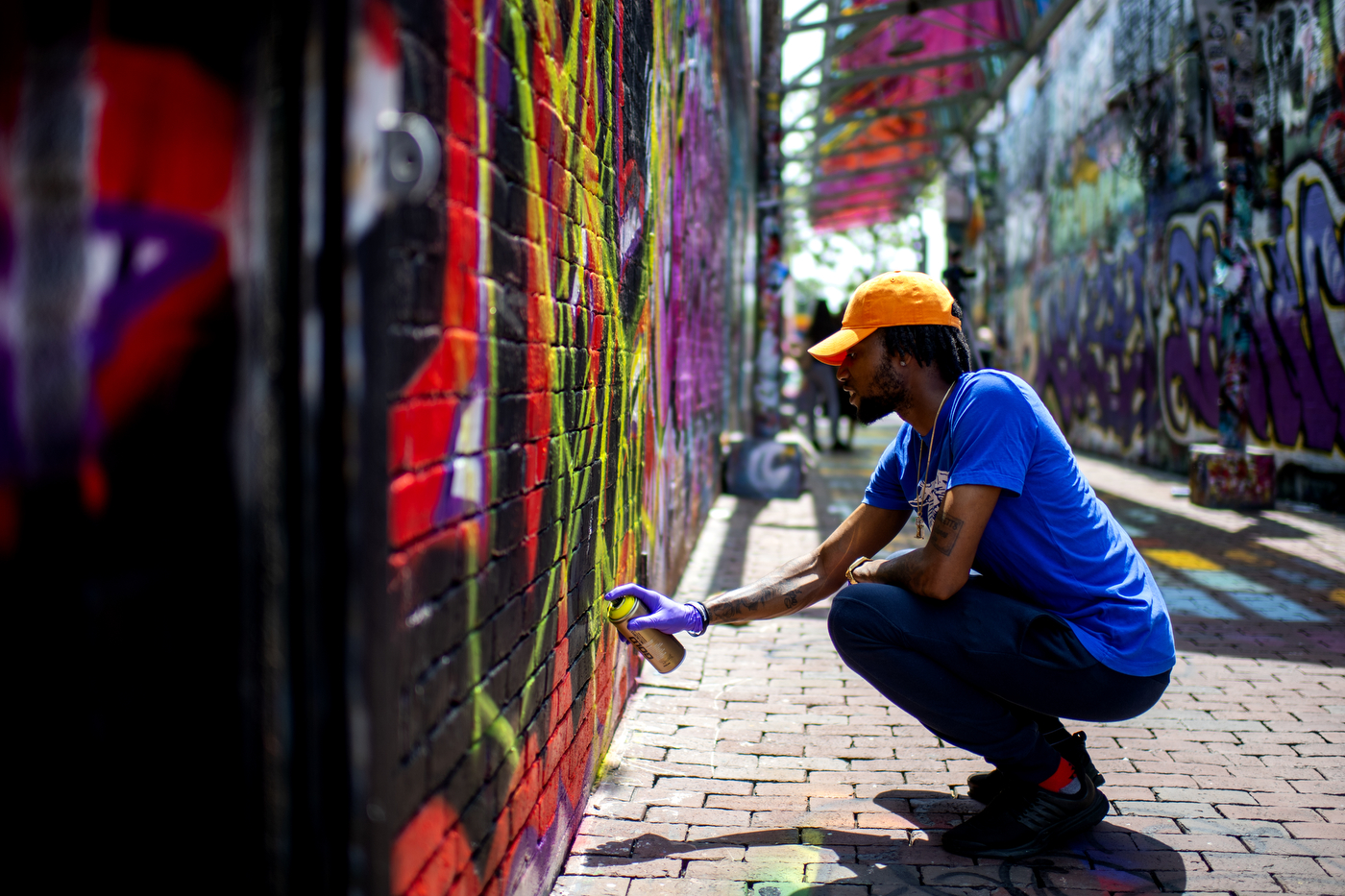
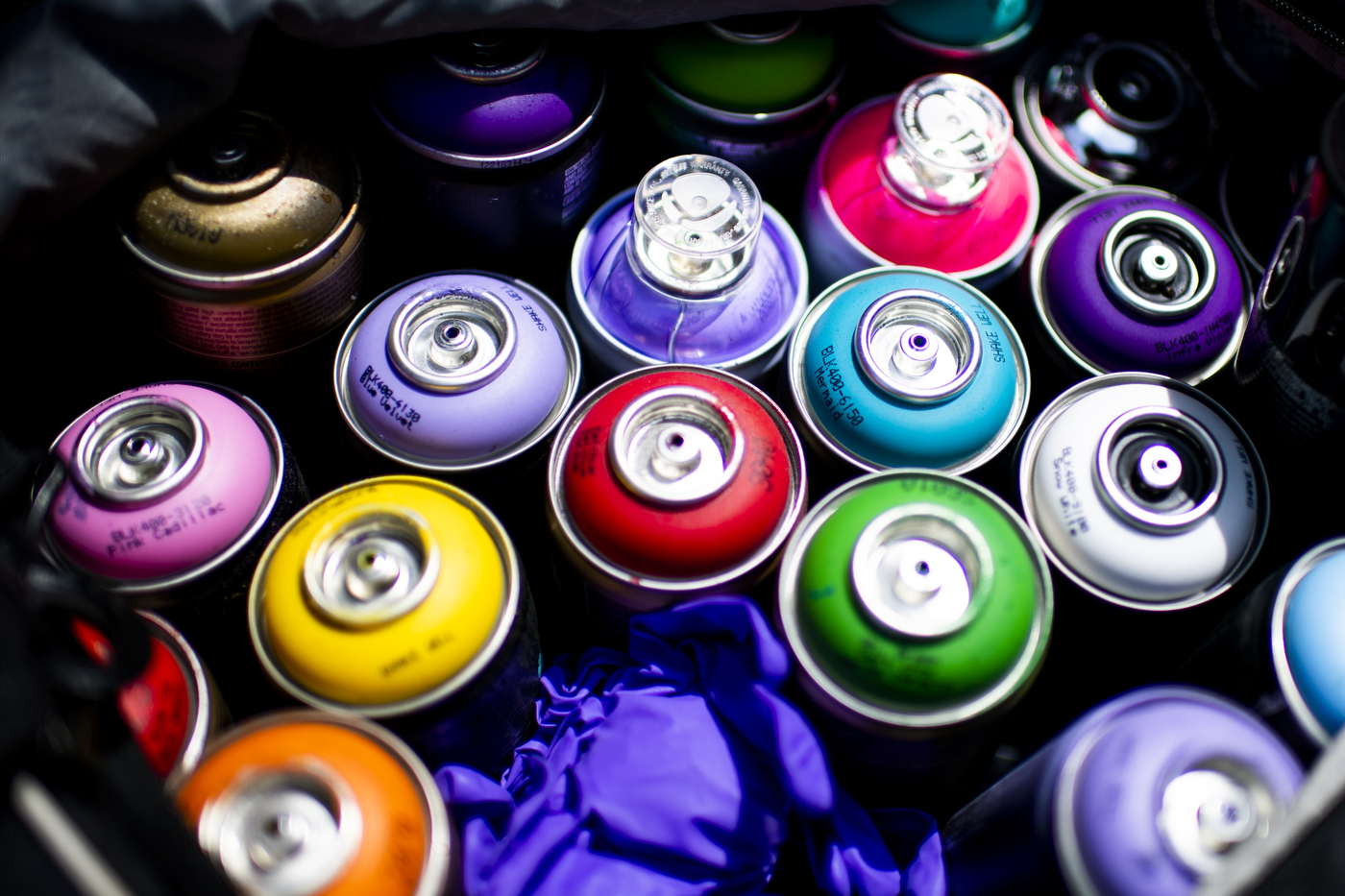
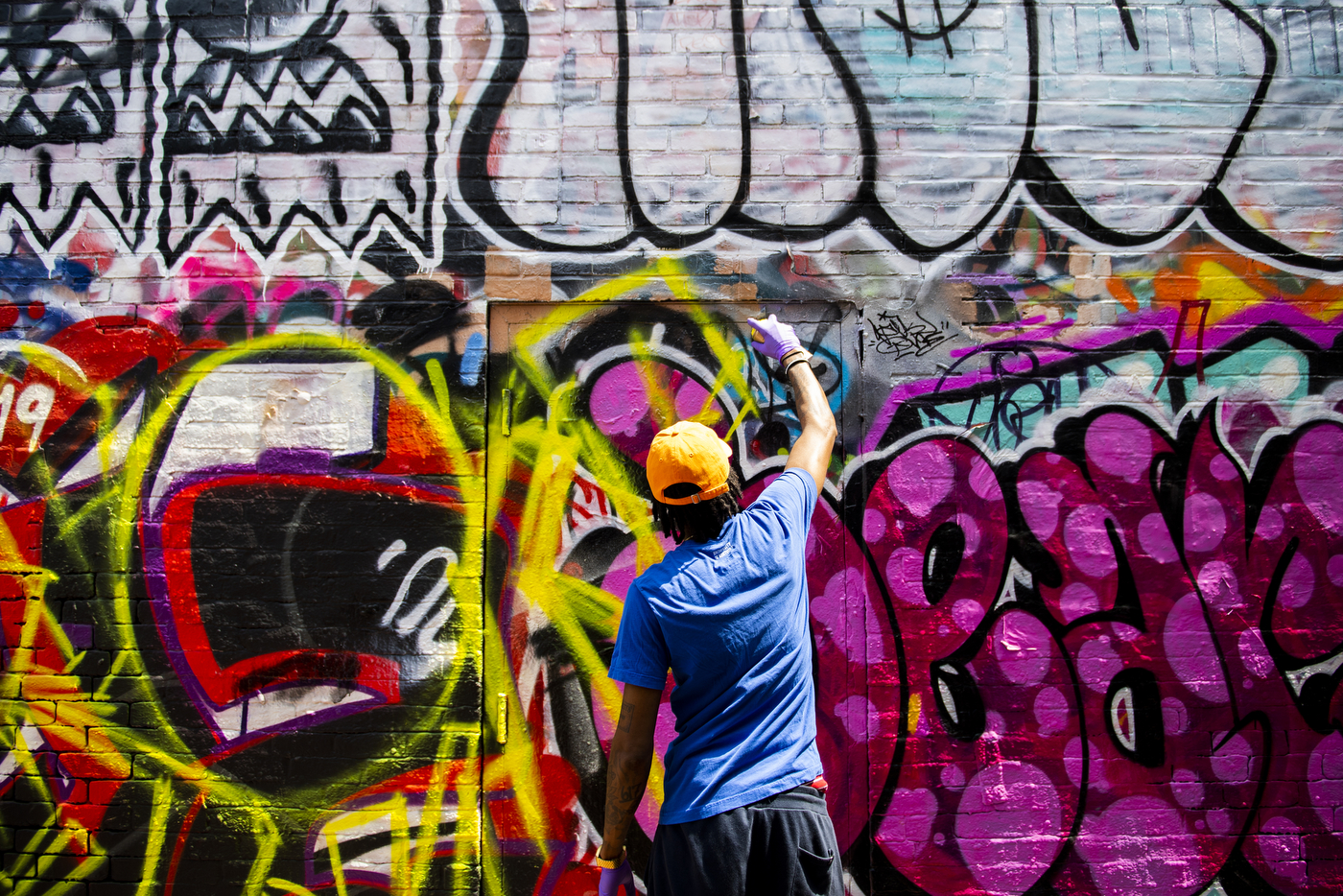
Huang says she was first inspired to make the film in April 2018 when she discovered the walkway on her daily commute to and from the Central Square subway station. At the time she was commuting from Cambridge to downtown Boston for work at an Asian art auction business. On many of these visits, she’d stop to take photos of the murals and chat with the artists, finding herself increasingly mesmerized over time by the quality of the art—and the ephemerality of it.
“Sometimes I see it in the morning and by afternoon, it’s gone,” she says. “Some people spend six hours, five hours, and finish one paint and it only lasts for a couple of hours.”
As a filmmaker who has studied oil painting at South China Normal University and digital media at Northeastern, she says she can appreciate the ever-changing nature of the art form and the passion that people bring to it.
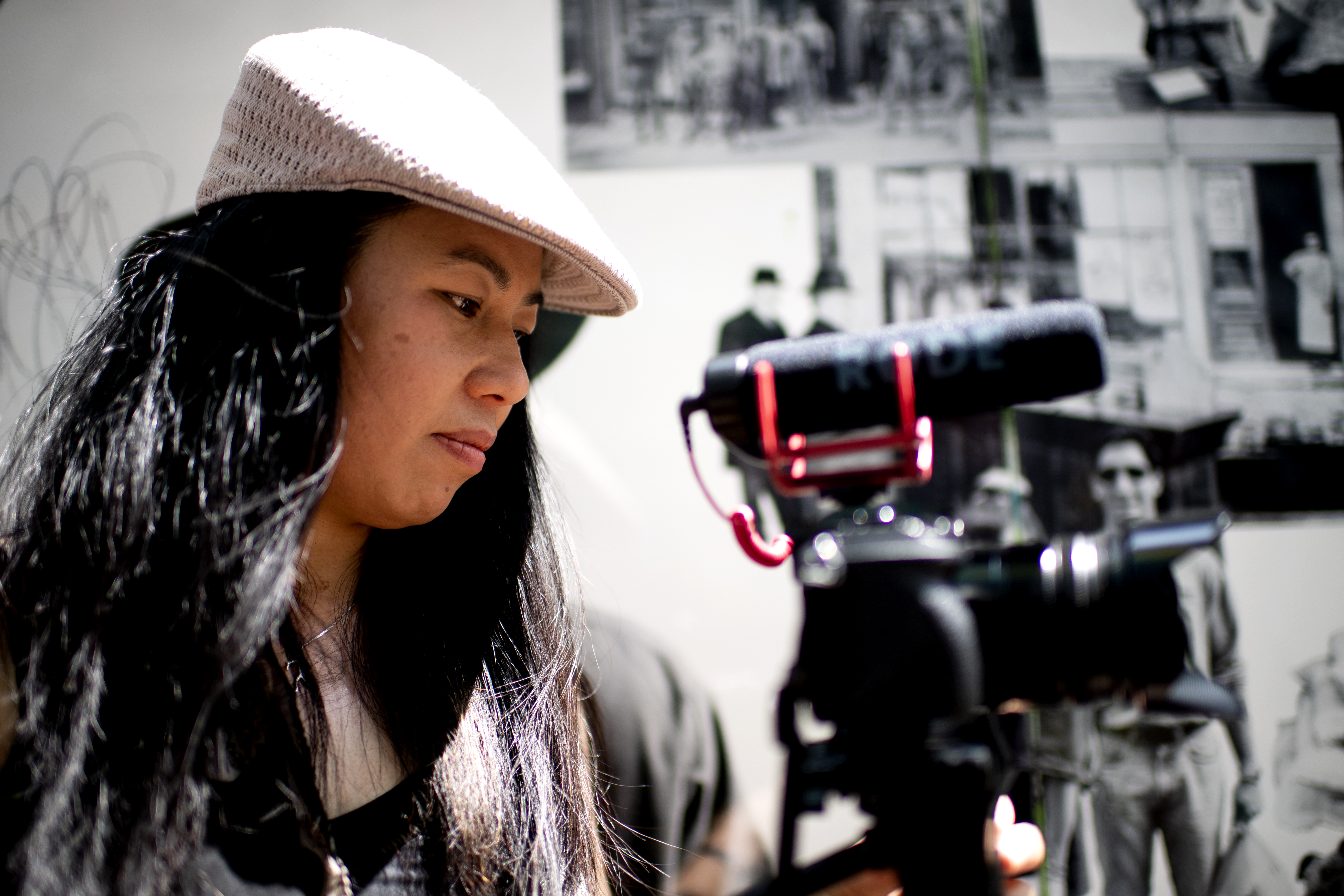
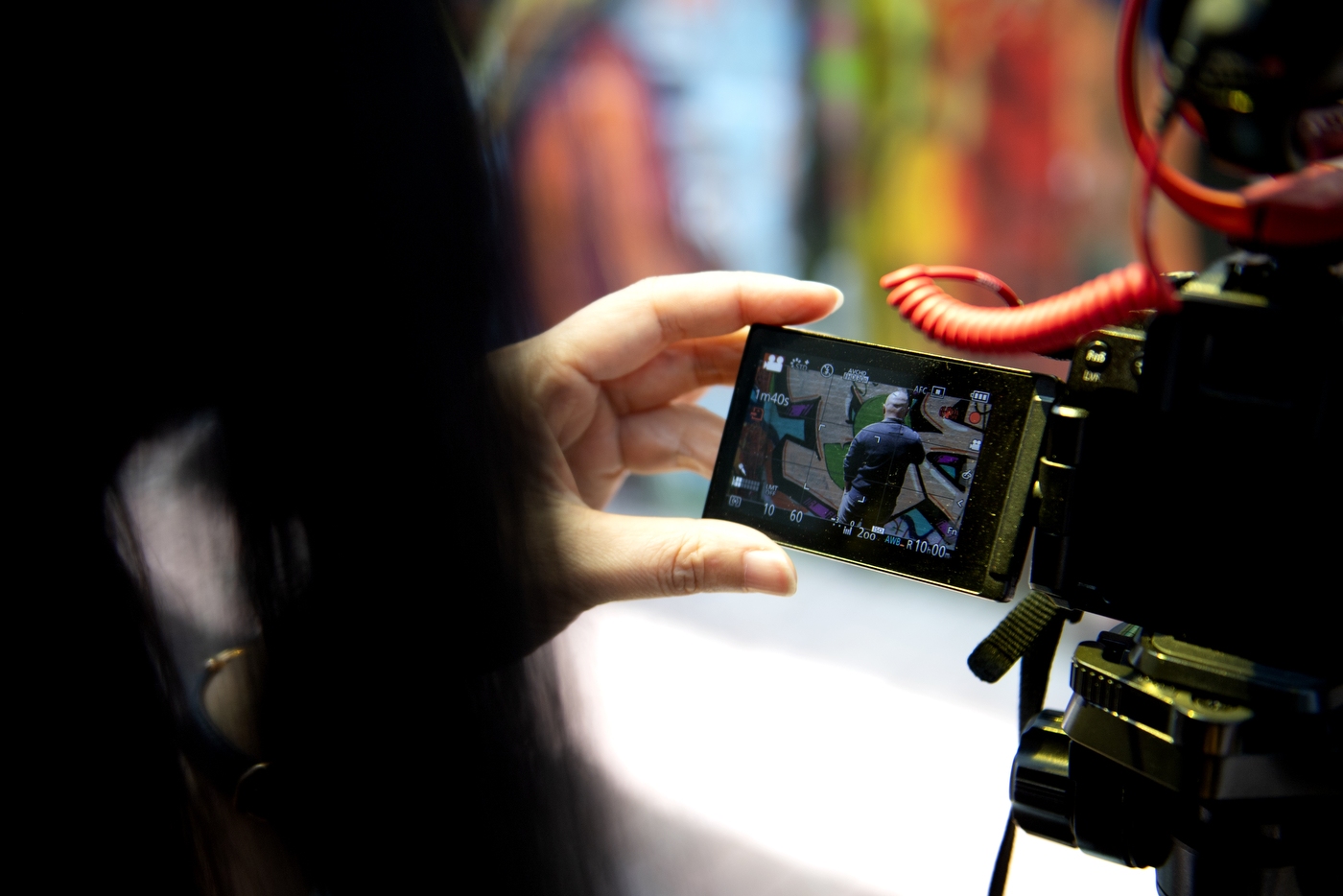
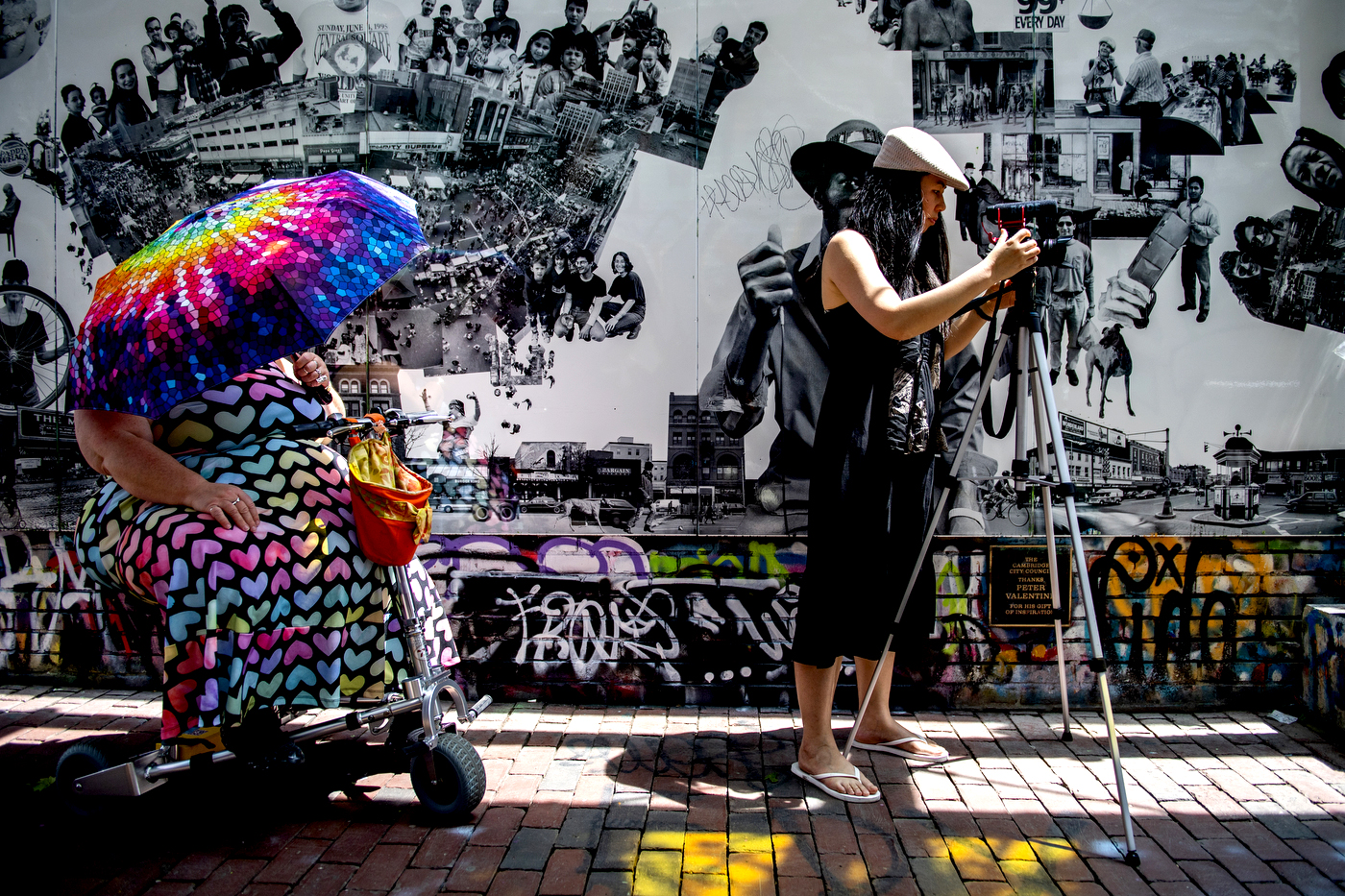
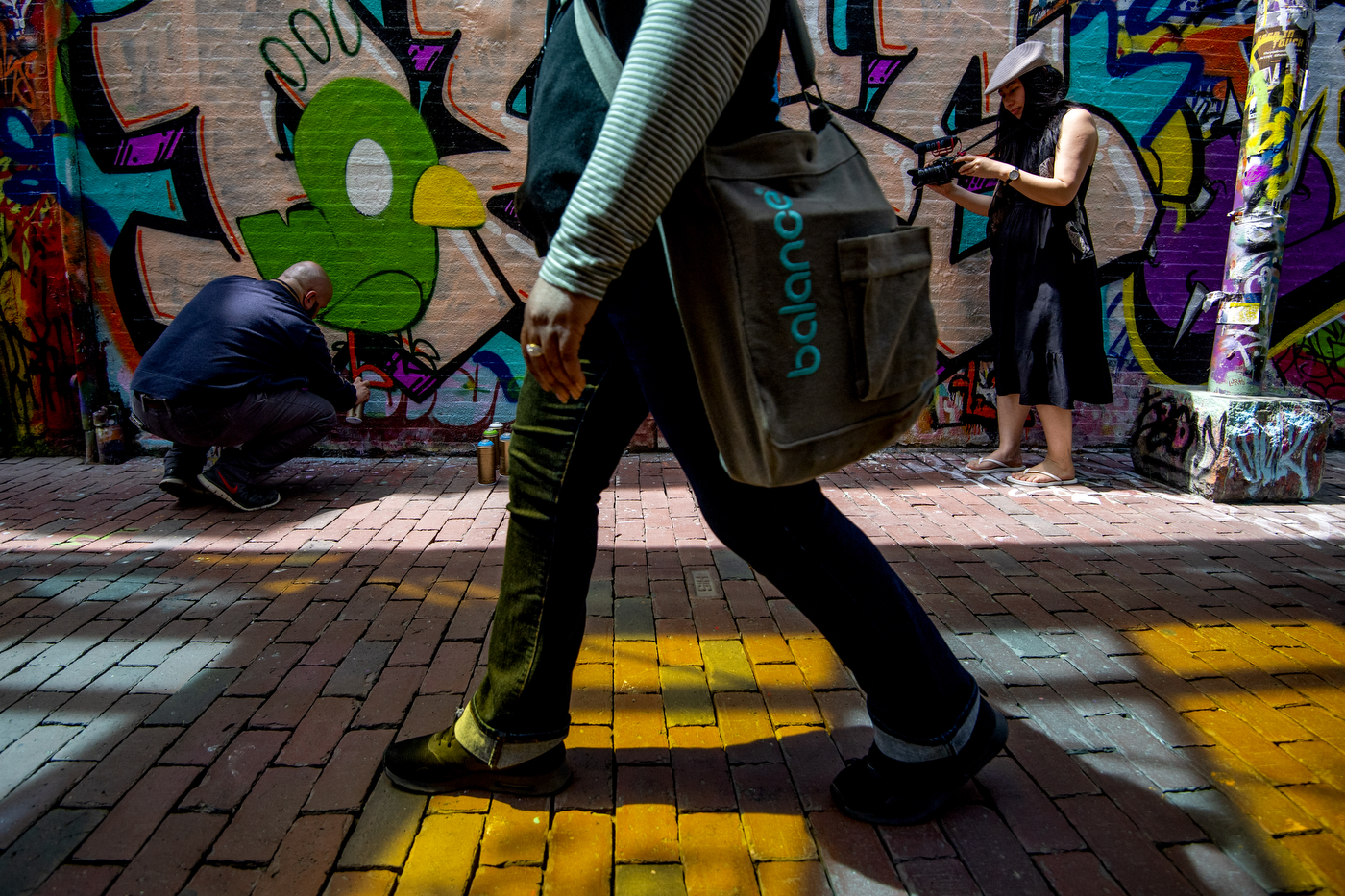
“I studied art so I understand some of their work,” she says. “It’s beautiful and really creative. I understand their value.”
She hopes to finish filming by the end of October. The public will have its first chance to see the film in November at a screening hosted by the Cambridge Public Library.
Huang says that “Above the Free Walls” seeks to build on the success of her first film, which delved into the Grolier Poetry Book Shop, an independent bookstore in Cambridge that claims to be the oldest continuously-run bookshop devoted strictly to the sale of poetry.
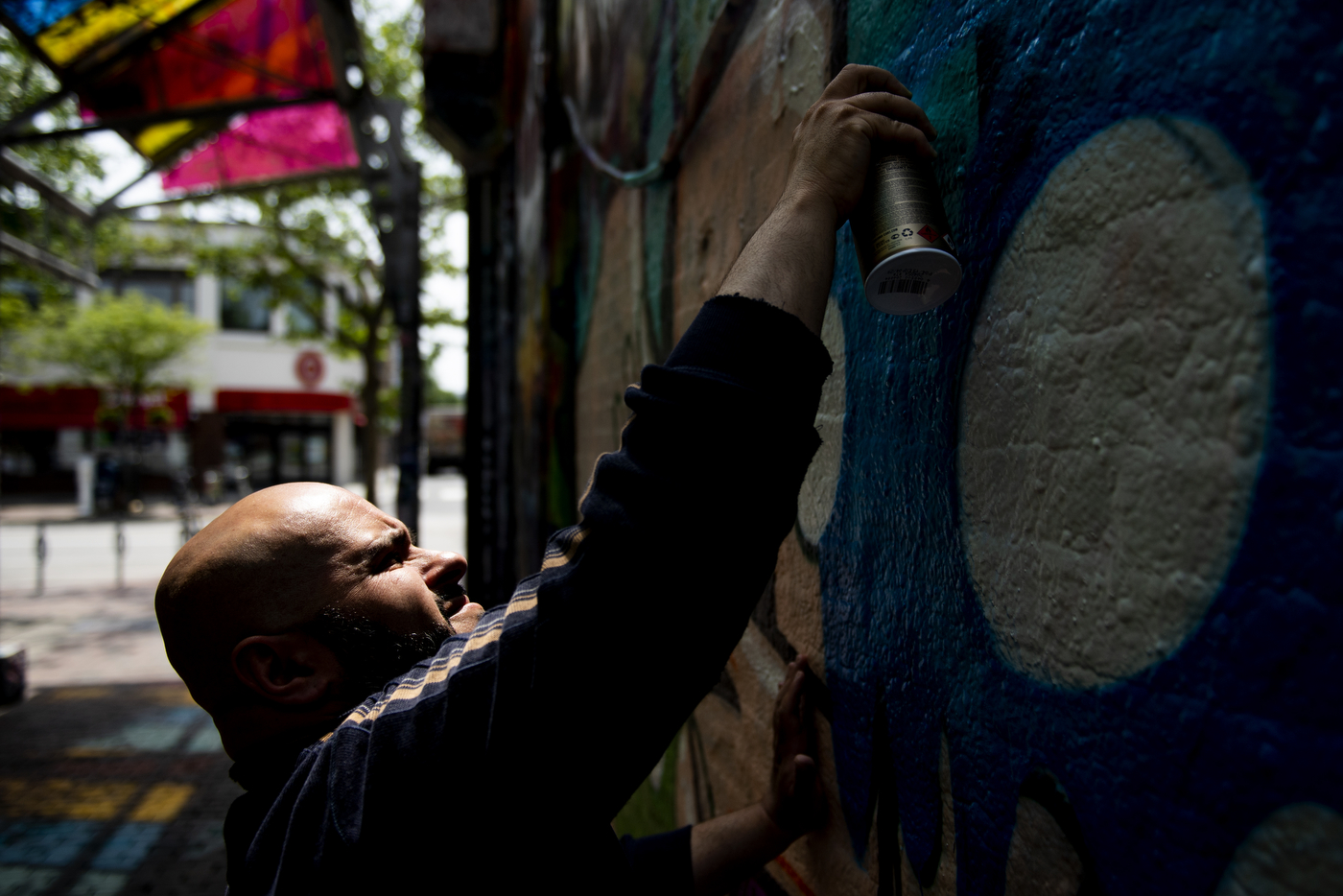
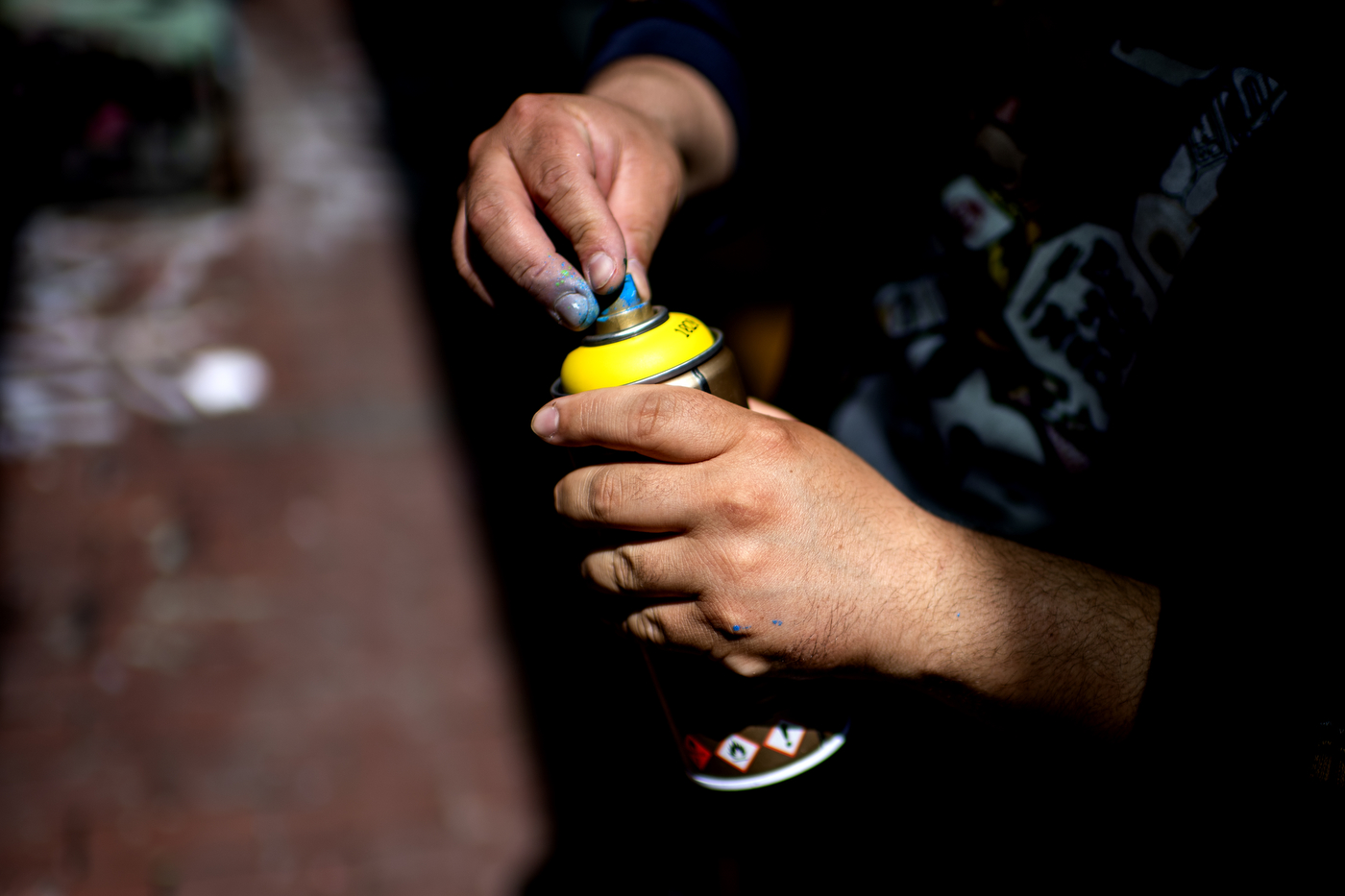
She and Northeastern graduate Mengyuan Lin made the film as part of their thesis project in 2017. Huang says that the film was screened at several film festivals in the United States, Canada, and Europe, and helped her gain recognition and build connections in the industry.
As a filmmaker, she says it’s important for her to tell stories to which she feels a personal connection. “If you do something every day, you will find something interesting,” she says.
For media inquiries, please contact media@northeastern.edu.





